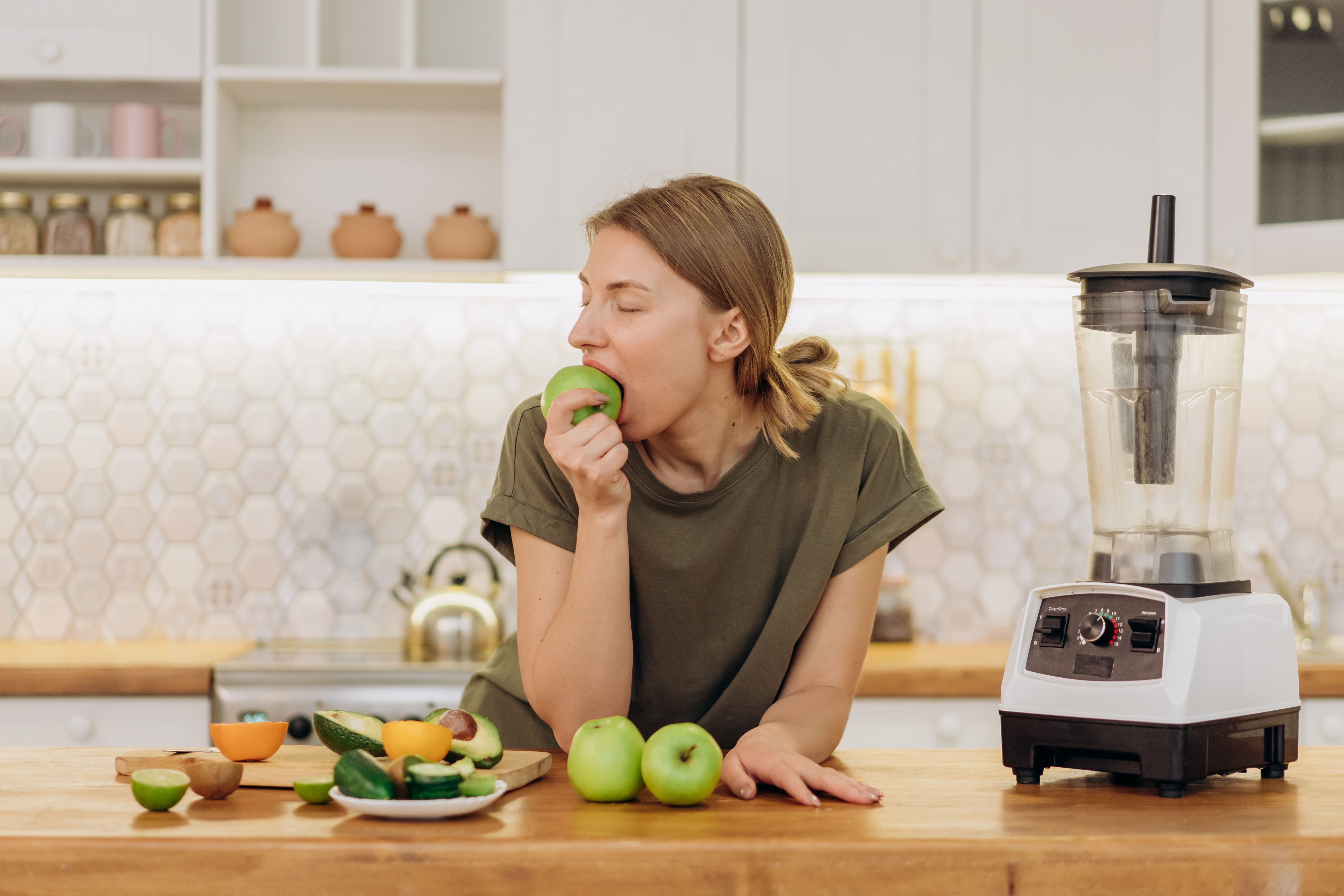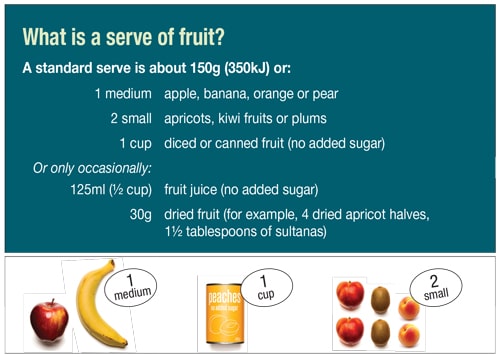

As a nutritionist, I commonly get asked the following questions:
- Can I eat fruit and still lose weight?
- How much fruit is too much?
- Will the sugar in fruit make me fat?
So, let?s break this right down and remove all confusion.
The short answers to the above questions are: Yes, you can still eat fruit and lose weight? And no, the sugar in fruit will NOT make you fat. In fact, the consumption of fruit has actually been proven to help with weight loss.
Before we dive deeper into this though, let us firstly start off by addressing why fruit sometimes gets a bad rep.
Why Do People Say That Fruit Will Make You Fat?
Typically, the reason fruit is demonized stems from the high sugar content it has. We have been led to believe that ALL sugar is bad. However, you need to understand that the context is very important.
There is a lot of strong evidence proving that over consumption of sucrose (white refined sugar) and high fructose corn syrup can be detrimental to your health. Don?t get me wrong, I truly believe in the notion of ?balance?? i.e. eating foods from all food groups (yes, this includes chocolate, chips, ice cream etc.) I believe that balance is key to sustainable weight loss.
However, the over consumption of added sugars has been linked with an increased risk of developing chronic diseases, including obesity, cardiovascular disease, diabetes, cognitive decline and even some cancers.
Yes, it is true that fruit does contain fructose sugar. And from the above statement, one could therefore assume that eating fructose would lead to weight and fat gain, right? However, epidemiological research has shown that the majority of fruit actually ASSISTS in weight and fat reduction.
In fact, one study conducted an 8-week fruit intervention. They discovered that the group that increased their fruit intake actually lost more weight and body fat than the group who did not increase their fruit consumption.
How Does Fruit Help You Lose Weight?
Right about now, you?re probably thinking something along the lines of, ?How does this work? If fruit is high in sugar, how can it help with weight loss??
When answering this question, it?s important to understand that the fructose sugar in fruit is typically found in very small amounts when compared to high-fructose corn syrup that?s commonly found in processed foods.
It?s also important to note that added processed sugars are digested very quickly, which can cause a dramatic spike in blood sugar levels and lead to an energy crash (your body feels tired and craves more sugar). However, contrarily the sugar in fruit is digested at a much slower rate because of the high fiber content fruit has. The fiber slows down the digestion of sugar, which ultimately means that the sugar in fruit will provide more sustained energy. Not to mention that fruit is very high in micronutrients, which are essential for good health. I am not going to go into detail about the myriad benefits of micronutrients found in different fruits, otherwise this post would be 10,000 words long!
Typically, when you increase your fruit consumption you will start to replace energy dense foods with fruit (which isn?t a very energy dense food group). Therefore, increasing fruit intake (to a certain extent) will decrease your overall energy consumption, and thus, allow you to be in a calorie deficit. If that sounded like another language to you, then here?s the basic summary: most fruits aren?t very high in calories, so when you increase your intake, you?ll often decrease your intake of other foods which are much higher in calories. Hence, you lose weight.

Is Fruit Juice Also Good For Weight Loss?
Fruit juice is a whole new story. You might be shocked to discover that many the fruit juices sold on the supermarket shelves are not even made from ?real? fruit. They are typically made from water, fruit flavorings and added sugar. They may sound healthy. However, the sugar content in these fruit ?drinks? can sometimes be as high are soft drink. And even if they do have real fruit in them, many other fruit juice options have a bunch of additional additives.
If you want to drink fruit juice, try making sure that you?re buying juice that?s made from 100% fruit and still has the pulp left in it. The pulp ensures that you?re still getting some of the fibre that you?d normally get when eating a piece of fruit (not in juice form).
What If You Were To Juice The Fruit Yourself?
I would recommend that you only have fruit juice as an occasional drink. This is because when a fruit is juiced, you remove all the fiber. Therefore, it will no longer be digested slowly by your body, but rather, cause a spike in your blood sugar levels which may ultimately lead to an energy crash.
Additionally, if you?re drinking juice, it?s a lot easier to consume large amounts. For example, you could juice 6 apples, 2 oranges, ˝ a watermelon and ˝ pineapple and drink it in 2 minutes. However, if you sat down to a plate of all that fruit, it?s unlikely that you?d even be able to finish it.
So, How Much Fruit Should You Eat?
To conclude, fruit is a healthy, nourishing whole food that should be enjoyed on a regular basis. Eating fruit often can help with weight loss, and can leave you feeling full and satisfied, whilst also providing your body with important micronutrients.
The Australian Dietary Guidelines recommend eating 2 serves of fruit per day. However, don?t be afraid to eat more fruit if you feel like it.
Remember to enjoy all fruits as part of a healthy, balanced diet.
